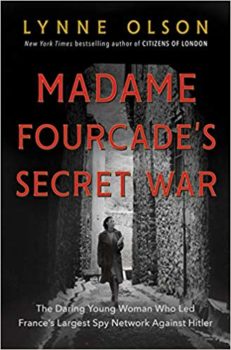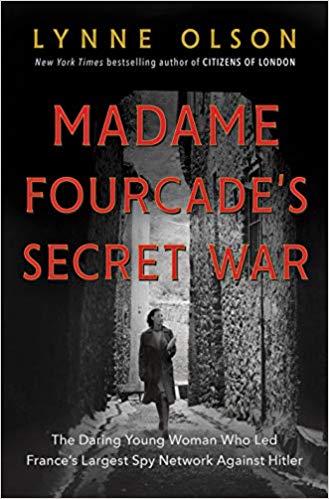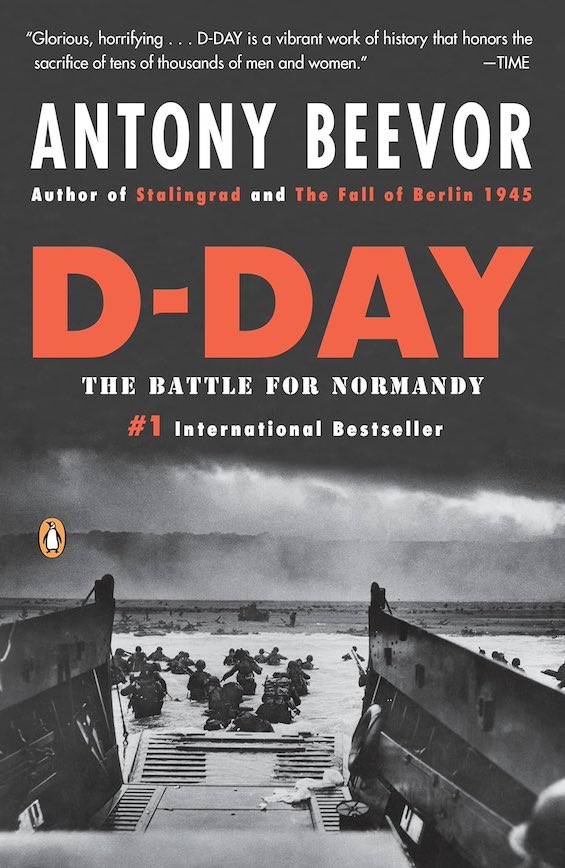
Estimated reading time: 7 minutes
She led the largest French Resistance network against the Nazis for nearly five years. Three thousand agents answered to her, and they delivered intelligence to the British that helped the Allies win the war. Yet she has been virtually forgotten for decades, her courage and resourcefulness ignored by Charles De Gaulle and the French Communist Party, the dominant political forces in France for decades. Because she wasn’t politically allied with either. And because she was a woman. Now a new biography belatedly restores her to the spotlight. It reads like a thriller. And it reveals the long-hidden truth about the French Resistance.
Her network helped the Allies win the war
Her name was Marie-Madeleine Fourcade. She began working in espionage in 1936 following Hitler’s march into the demilitarized zone of the Rhineland in violation of the Versailles Treaty. She was 26 years old. In 1941, following her boss’s capture by the Nazis, she became chef de resistance of Alliance, a network created to funnel intelligence to MI6.
Madame Fourcade’s Secret War: The Daring Young Woman Who Led France’s Largest Spy Network Against Hitler by Lynne Olson (2019) 464 pages ★★★★★
In the course of the next five years, Fourcade’s agents achieved three critical intelligence breakthroughs:
- A young woman named Jeannie Rousseau delivered detailed information about Hitler’s terrifying V-2 program that allowed Allied bombers to destroy its base at Peenemünde and set back the program for many months. She saved many thousands of lives in the process.
- An extensive network of Alliance spies working on France’s northern and western coasts played two equally important roles. First, they delivered detailed information about Germany’s U-Boat comings and goings that eventually helped the British prevent them from sinking more vital Allied shipping.
- And they supplied extremely detailed information about the fortifications and Nazi troop deployments in Normandy that helped the Allies successfully gain a foothold there in June 1944.
The myth of the French Resistance
Most of what we’ve read about the French Resistance dwells on the maquis, saboteurs and guerrilla fighters who bedeviled the Nazis in the closing years of the war. They make good copy, and cameras love the action. And from the fictional accounts, which dominate our understanding of the era, we get the impression that both the maquis and lesser-known Resistance groups involved in intelligence-gathering were associated with one of three forces:
- Charles De Gaulle‘s Free French;
- the French Communist Party; or
- Britain’s Special Operations Executive (SOE).
The myth also holds that everyone involved in France’s Vichy government actively supported the Nazis. This falsehood, too, was promoted by De Gaulle and the Communists, who were eager to take full credit for the Resistance.
The reality is different.
The truth about the French Resistance
The maquis accomplished little
First, latter-day scholarship has established that sabotage and guerrilla operations had little if any effect on the outcome of the war. The maquis provided fodder for breathless press accounts and later books, films, and television shows. But they accomplished little other than to boost French morale. And Churchill’s SOE disbanded following the Allied victory.
DeGaulle and the Communists did not run the Resistance
Second, the Resistance was anything but united under De Gaulle and the Communists until the closing days of the war. Until then, hundreds of groups were scattered about the country, some working for De Gaulle or the Communists, others for De Gaulle’s rival, General Henri Giraud, still others completely on their own. In fact, these groups frequently fought one another, occasionally even with guns. And the biggest and most effective Resistance network of all was Alliance, commanded by Marie-Madeleine Fourcade, working directly with Britain’s MI6.
There were many anti-Nazi French in the Vichy Government
Third, a substantial number of the military, police, and officials working for Vichy were, in fact, anti-Nazi. “Vichy was far from being a monolithic regime. It was made up of competing factions, drawn from a wide range of backgrounds and with different objectives.” A number of the key operatives in Alliance emerged from Vichy. And when Fourcade was captured by French police in the “free” zone governed by Vichy, the officers helped her escape under the noses of the Gestapo.
One extraordinary young woman
In Madame Fourcade’s Secret War, Lynne Olson writes of the Resistance commander’s “decisiveness, single-mindedness, and legendary organizational skills.” And she quotes “Navarre,” the founder of Alliance, saying that Fourcade had “the memory of an elephant, the cleverness of a fox, the guile of a serpent, the perseverance or a mole, and the fierceness of a panther.” Clearly, Fourcade was all that. But she was also young, a woman, a mother of two young children, well-to-do, stylish as only the French can be, and by all accounts beautiful.
Again and again throughout the war, she was forced to prove herself in an environment in which extremely few women held leadership positions. Olson’s book abounds with examples of the sexism Fourcade repeatedly encountered. Yet every one of the men who were recruited to Alliance and fancied themselves leading the network quickly yielded to her lead. She was, in a word, extraordinary. For months on end, she successfully coordinated Alliance while on the run from the Gestapo and the French police.
One in five of her agents was captured by the Germans
There is no disputing the danger Fourcade encountered on a daily basis for nearly five years. “Of Fourcade’s three thousand agents, about six hundred had been imprisoned by the Germans during the war. So far [late in 1944], she knew of only about 150 who had survived that ghastly experience. Of the remaining 450, dozens were already known to be dead, among them some of her top lieutenants and agents.” And later evidence came to light that most of those 450 had, indeed, been executed by the Nazis or died of starvation or overwork in forced-labor camps.
For related reading
This book is a runner-up to the 10 top WWII books about espionage and is one of 10 true-life accounts of anti-Nazi resistance.
I’ve reviewed another superb book about World War II by Lynne Olson, Citizens of London: The Americans Who Stood with Britain in its Darkest, Finest Hour (The men behind the British-American partnership in WWII).
You’ll also find here reviews of several other nonfiction books about the SOE and the French Resistance:
- Code Name: Lise: The True Story of the Woman Who Became World War II’s Most Highly Decorated Spy by Larry Loftis (A woman was World War II’s most highly decorated spy);
- Fourcade’s Secret War: The Daring Young Woman Who Led France’s Largest Spy Network Against Hitler by Lynne Olson (The truth about the French Resistance, dug out of old records);
- A Woman of No Importance: The Untold Story of the American Spy Who Helped Win World War II by Sonia Purnell—The WWII American woman spy who kept the French Resistance alive;
- D-Day Girls: The Spies Who Armed the Resistance, Sabotaged the Nazis, and Helped Win World War II by Sarah Rose (The women who parachuted behind German lines and helped secure the Normandy landing); and
- Rogue Heroes: The History of the SAS, Britain’s Secret Special Forces Unit that Sabotaged the Nazis and Changed the Nature of War by Ben MacIntyre (The story of the original special forces).
I’ve also read and reviewed three excellent novels about the French Resistance:
- The Nightingale by Kristin Hannah (A deeply affecting novel of the French Resistance);
- Red Gold (Night Soldiers #5) by Alan Furst (A brilliant novel of the French Resistance);
- A Hero of France (Night Soldiers #16) by Alan Furst (Vive la Resistance!).You might also be interested in 5 top nonfiction books about World War II and The 10 best novels about World War II; and
- in fact, you’ll also find a longer list of Good books about the French Resistance.
And you can always find my most popular reviews, and the most recent ones, on the Home Page.


























